
Why Machines Will Never Rule the World
Barry Smith and Jobst Landgrebe, authors of the book "Why Machines will never Rule the World," join us today. They discussed the limitations of AI systems in today's world. They also shared elaborate reasons AI will struggle to attain the level of human intelligence.
29 Maj 202355min

A Psychopathological Approach to Safety in AGI
While the possibilities with AGI emergence seem great, it also calls for safety concerns. On the show, Vahid Behzadan, an Assistant Professor of Computer Science and Data Science, joins us to discuss the complexities of modeling AGIs to accurately achieve objective functions. He touched on tangent issues such as abstractions during training, the problem of unpredictability, communications among agents, and so on.
23 Maj 202349min

The NLP Community Metasurvey
Julian Michael, a postdoc at the Center for Data Science, New York University, joins us today. Julian's conversation with Kyle was centered on the NLP community metasurvey: a survey aimed at understanding expert opinions on controversial NLP issues. He shared the process of preparing the survey as well as some shocking results.
15 Maj 202349min
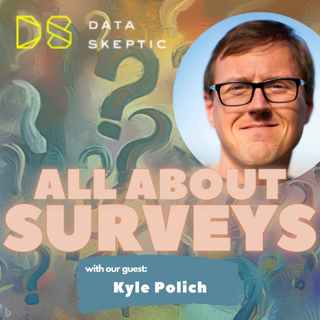
Skeptical Survey Interpretation
Kyle shares his own perspectives on challenges getting insight from surveys. The discussion ranges from commentary on the market research industry to specific advice for detecting disingenuous or fraudulent responses and filtering them from your analysis. Finally, he shares some quick thoughts on the usage of the Chi-Square test for interpreting cross tab results in survey analysis.
10 Maj 202321min
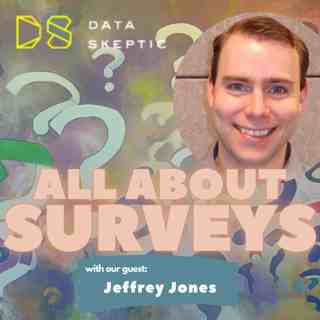
The Gallup Poll
Jeff Jones, a Senior Editor at Gallup, joins us today. His conversation with Kyle spanned a range of topics on Gallup's poll creation process. He discussed how Gallup generates unbiased questionnaires, gets respondents, analyzes results, and everything in between.
1 Maj 202340min
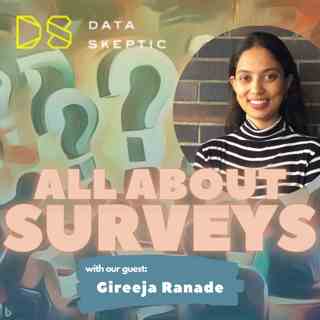
Inclusive Study Group Formation at Scale
Gireeja Ranade, a University of California at Berkeley professor, speaks with us today. She presented her study on implementing inclusive study groups at scale and shared the observed student performance improvements after the intervention.
25 Apr 202332min
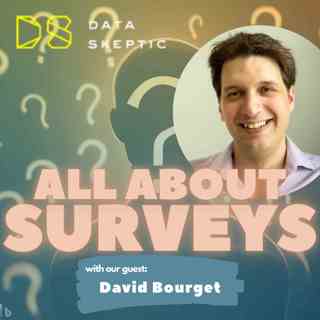
The PhilPapers Survey
Today, we are joined by David Bourget. David is an Associate Professor in Philosophy at Western University in London, Ontario. David is also the co-director of the PhilPapers Foundation and Director of the Center for Digital Philosophy. He joins us to discuss the PhilPapers Survey project. The PhilPapers survey was initially taken in 2009, but there was a follow-up survey in 2020. David discussed the need for the subsequent survey and what changed. He mentioned the metric for measuring the opinion changes between the 2009 and 2020 surveys. He also shared future plans for the PhilPapers surveys.
21 Apr 202331min
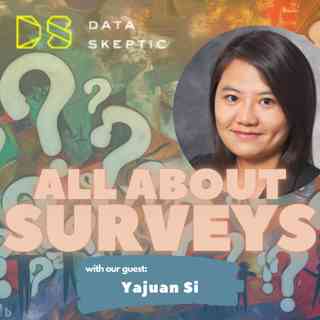
Non-Response Bias
Today's show focused on an essential part of surveys — missing values. This is typically caused by a low response rate or non-response from respondents. Yajuan Si is a Research Associate Professor at the Survey Research Center at the University of Michigan. She joins us to discuss dealing with bias from low survey response rates.
10 Apr 202335min





















